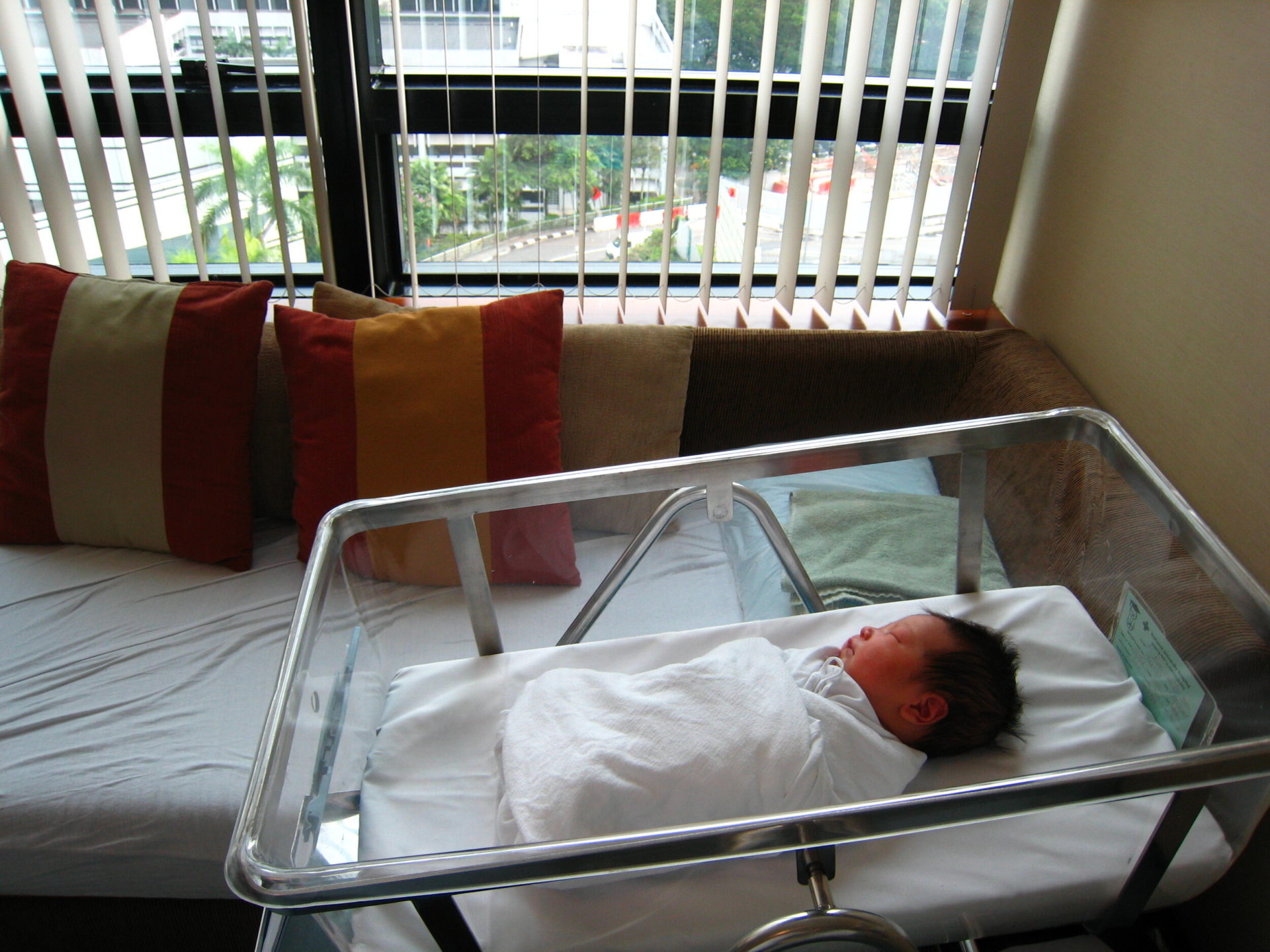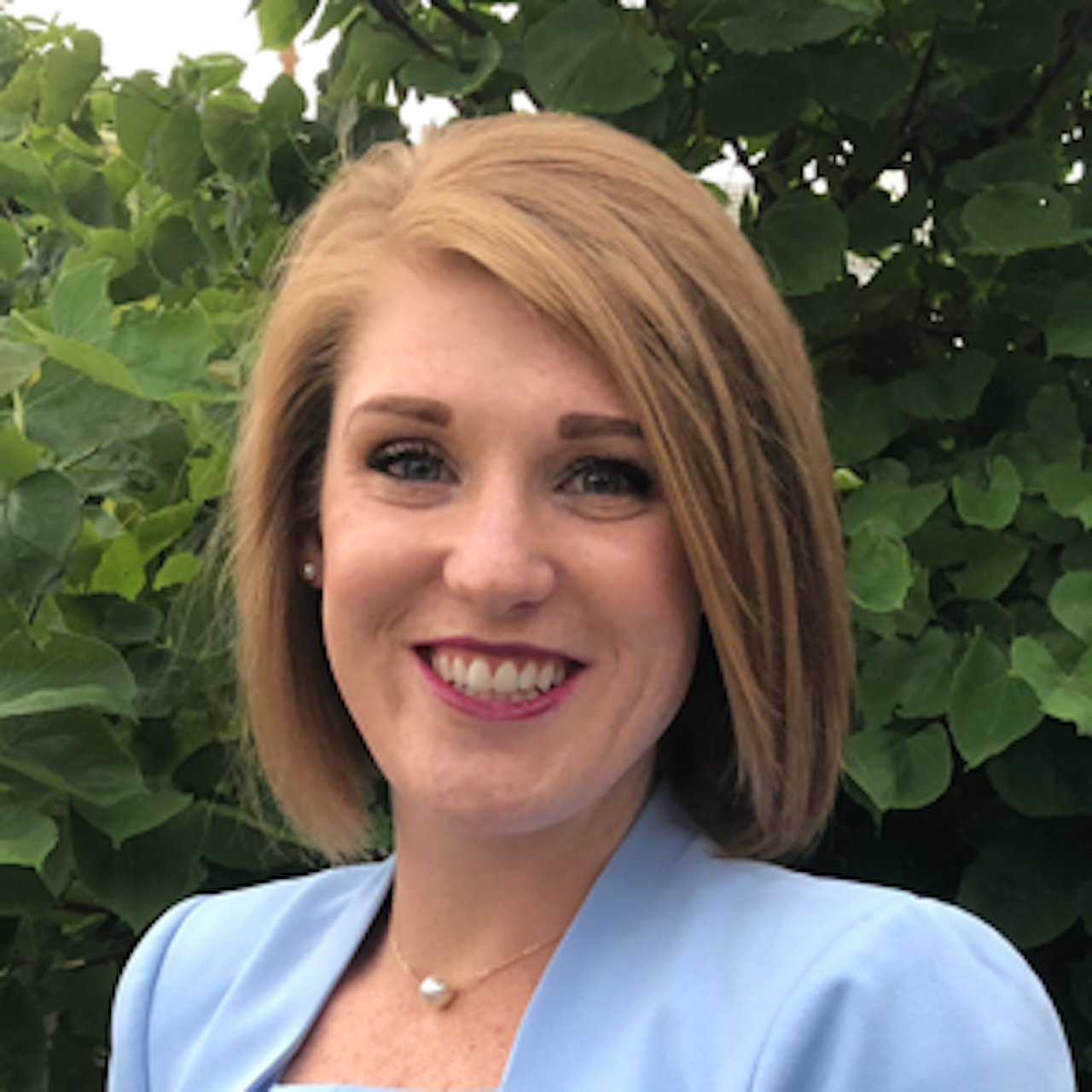
May 15, 2008 – NUH Maternity Ward (Photo by David Lee | Flickr)
Baby Anna was just welcomed to the world less than 24 hours ago when she starts a nails-on-chalkboard, high-pitched wailing cry that won’t stop. Her mom tries everything she can think of, but Baby Anna won’t be soothed or nurse. Luckily for Baby Anna and her mom, her experienced registered nurse knows just what to do to help. In short order, the nurse has Anna swaddled tightly, the lights off, she’s talking in a low voice, and she is helping Baby Anna’s mom nurse her.
Baby Anna is in drug withdrawal. Her mom was prescribed an opioid medication during pregnancy. Anna is now withdrawing from that prenatal exposure. Baby Anna isn’t alone. In the United States, at least one newborn with neonatal abstinence syndrome (NAS) is born every 15 minutes, which equates to almost 100 NAS newborns being born each day. As the rate of opioid addiction increases across the country – especially during the pandemic – the rates of neonatal abstinence climb as well. The incidence of NAS quadrupled from 1999 to 2014 and continues to rise.
Baby Anna and other newborns with NAS suffer from a range of withdrawal symptoms. Some of these symptoms include difficulty feeding, forceful spitting up, difficulty keeping any milk in their system (putting them at risk for dehydration), and constant loose diarrhea that excoriates their skin (a severe diaper rash). Baby Anna also has developed neurologic symptoms requiring careful monitoring, including jerky body movements, being hard to console, and a piercing cry.
Previously, there was a heavy reliance on treating these babies’ withdrawal symptoms with medication. Now we are learning that fundamental nursing care leads to a decreased need for, and therefore use of, opioid medication, such as morphine. Nursing care includes facilitating mother/infant bonding and parent education. There is a lovely reciprocity that occurs when we focus on fundamental nursing care first. By focusing first on bonding and the parent caring for the infant, less medication is needed. When a baby receives less medication, the baby is more capable of participating in interactions with the parents, the mother and baby experience more bonding, and more breastfeeding. The mother is empowered to care for the infant.
As nurses are the ones primarily responsible for their assessment and care, they are uniquely positioned to promote optimal outcomes for newborns with NAS. Nurses’ responsibilities include accurate assessment and withdrawal scoring, communicating and creating care plans with the healthcare team, supporting parent-newborn bonding, facilitating breastfeeding, educating parents, and preparing parents and newborns for discharge. Withdrawal scoring requires knowledge of withdrawal symptoms and uses a numeric system to identify symptoms and rate their severity.
Another significant responsibility of the nurse is providing specialized teaching to support and sustain the parent’s involvement in their newborn’s care. Parent involvement, of course, is critical to the baby’s outcomes both during the hospital stay and after discharge. Teaching the parent(s) how to soothe their infant and assist with non-pharmacological interventions is key. Parents need specialized teaching to care for their newborn’s complex needs. Since infants withdrawing present particular symptoms, parents must be able to identify warning signs, know how to intervene, and know when to seek help or follow up. Educating the mother entails teaching how to breastfeed a baby who has difficulties with latching and is hard to soothe while providing emotional support. Although the care of the newborn appears basic, is it time and labor-intensive. Therefore, optimal care with parent involvement requires having enough nurses.
In addition, showing compassion and creating a safe space where parents do not feel judged is imperative for parental involvement. The physical environment of the hospital unit is also an important factor. The environment should allow for the family to have privacy which encourages participation in the care of their infant.
Due to the excellent nursing care Baby Anna received, her future is bright. To improve the outlook for other newborns and patients in general, several actions are warranted. Obtaining sufficient nurse staffing entails having hospital administrators who value the work of nurses. Administrators should specifically recognize the influence that nurses have on patient outcomes, patient satisfaction, and cost savings. In the case of Baby Anna, sufficient nursing resources may result in a shorter, less expensive stay and a decreased chance of readmission.
Beyond healthcare institutions, recommended targets include public policy, media portrayals, and representation of nurses on decision-making bodies. Public policy should support appropriate nurse staffing. The media plays an important role in how the opioid epidemic is portrayed generally, but when it comes to nursing care, it should accurately portray nurses’ contributions to patients’ wellbeing. We should all expect and require that nurses are in decision-making roles on professional and governmental bodies where their knowledge and expertise can be utilized to advance health. For example, the Department of Health and Human Services recently convened an expert panel to develop standardized NAS definitions. Just one of 19 panel members was a nurse. Despite nurses being on the frontline of COVID-19 care, President Biden’s COVID-19 taskforce did not include nurses until a petition in November 2020 resulted in a single nurse being appointed.
The benefit of a “nursing first” approach applies to many hospitalized patients. Achieving this benefit requires a sea change in nurses being viewed as independent professionals with unique contributions to patient well-being. Research supporting the influence of nursing care on outcomes exists and is substantial. In order to provide the best possible care for other newborns like Baby Anna, the time has come to prioritize a nursing first approach.
About the Authors

Eileen Lake, Ph.D., RN, FAAN(1)
Eileen Lake is the Jessie M. Scott Endowed Term Chair in Nursing and Health Policy, a professor of nursing, and associate director of the Center for Health Outcomes and Policy Research at the School of Nursing at the University of Pennsylvania.

Kathleen E. Fitzpatrick Rosenbaum, BSN, RN, RNC-NIC,
CCRN(1)
Kathleen Rosenbaum is a first-year predoctoral fellow at the Center for Health Outcomes and Policy Research at the School of Nursing at the University of Pennsylvania with a background in level IV Neonatal Intensive Care nursing.

Kathleen O’Rourke, MSN, RN (2)
Kathleen O’Rourke MSN, RNC-OB, CBC is the Nurse Manager of the Intensive Care Nursery at the Hospital of the University of Pennsylvania. She received her MSN from the University of Pennsylvania’s School of Nursing and has practiced nursing in various roles in the Women’s Health Department at the Hospital of the University of Pennsylvania for 20 years.

Rachel French, Ph.D., BSN,
RN(1)
Rachel French is a third-year predoctoral fellow at the Center for Health Outcomes and Policy Research at the School of Nursing and an associate fellow at the Leonard Davis Institute of Health Economics.

Rebecca R.S. Clark, PhD, MSN, RN, CNM, WHNP-BC(1)
Rebecca R. S. Clark is a postdoctoral fellow at the Center for Health Outcomes and Policy Research at the School of Nursing and an associate fellow at the Leonard Davis Institute of Health Economics






